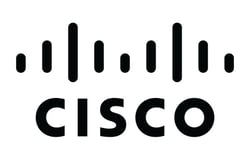/The%20Trade%20Off-min.jpg)
The trade-off: AI efficiency vs security
“AI in its broadest sense at the moment is probably like a prepubescent teenager.” Explore the reasons behind technology leaders' calls for caution in dealing with AI and the potential organisational risks it may entail.
An overview of AI risk
In the age of data-driven advancements, safeguarding the lifeblood of AI—our data—has become paramount.
Is AI a faithful friend or co-pilot when it comes to fortifying our digital defences, or does it pose unforeseen challenges to our security infrastructure? This question lies at the heart of the discourse on the evolving relationship between AI efficiency and robust security measures.
As organisations embrace AI as an assistant, senior technology leaders explore how they can seamlessly integrate AI with IT operations to enhance efficiency without compromising their security.
Meet the panellists
With Keme Nzerem moderating this roundtable debate, the speakers included:
- Nick Gilbert, CDIO, University of Surrey
- Una Verhoeven, VP Global Technology, Valtech
- Diana Kennedy, CTO, Bupa
- Neil Trevains, Solutions Architect - UK Data Center Architecture Practice, Cisco
Watch the roundtable highlights for The trade-off: AI efficiency vs security
AI risk: Key takeaways
Emerging technologies: Friend or foe?
Getting to the heart of the matter, moderator Keme Nzerem asked the panellists whether cutting-edge technology and data are a “friend… or foe?”.
Nick Gilbert, CDIO at the University of Surrey, discussed the fear, uncertainty and doubt that arises with new technology and the challenges it brings. His answer? A little bit of both.
“Any new technology is going to cause challenges but creates incredible opportunity.” What makes the difference between friend or foe here is the application of technology and how a team builds out the maturity and capabilities.
Bupa’s CTO Diana Kennedy presented a more positive view of emerging technologies.
“I'm hugely optimistic about the way technologies, particularly the most advanced technologies that we now know and love, are genuinely saving lives faster than Then we've been able to do in our history.”
Coming from the healthcare industry, Diana argued that technology is developing faster medicines and improving care as a result, making it what she calls an “inspiring” time to be a part of the health technology industry.
Emerging and cutting-edge technology provides technologists with what Valtech’s Una Verhoeven calls a “tremendous opportunity”. However, she advised a certain degree of caution when it comes to working with customers.
“There are so many startups, there are so many tools out there. It's quite crazy to see what kind of speed they're currently going and we need to be mindful with what we're working with.”
With technologists wanting to try every “shiny new toy”, Una emphasised the importance of being selective and cautious with what tools to use, especially when working with PI data, as well as keeping GDPR compliance and regulations in the back of their minds.
AI, the double-edged sword
“AI in its broadest sense at the moment is probably like a prepubescent teenager.”
Cisco’s Solutions Architect - UK Data Center Architecture Practice, Neil Trevains, argued that from an AI perspective it all comes down to the nature versus nurture aspect. He asked the panellists to consider the data and potential biases that we “put into those bottles” and the potential ramifications that could arise from this.
Quoting former Google X’s Chief Mo Godat, Neil argued that a boundary needs to be drawn for AI. “It is an extremely powerful tool and it's also the first time that, from a technology perspective, it's gone beyond being a tool.”
When asked about the risks associated with emerging technologies, Neil said that it has become a “double-edged sword”.
“Some of the smartest, brightest, most code-efficient developers in the world are threat actors.” Paired with the potential of AI risks, he commented that this has resulted in an ongoing “arms race” from a security perspective.
Assessing AI risk
So, how do we manage the AI risk?
“Thinking about how external threat actors could misuse your data is really important.” Thinking about AI risks, Nick argued that while sharing private data is part of the problem, he advised the panel to ponder the ethical considerations behind using this technology.
“I think this really is going to be a wake-up call for a lot of us around – what do we think the impact of this technology is going to be for people.”
Commenting on risks to data in the healthcare industry, Diana reflected on the “terrifying” prospect of having your data at risk, arguing that a global healthcare organisation like Bupa “has to and does treat its customer patient data with extraordinary care.”
On the one hand, Diana believes that AI tools are enabling technologists to better protect their data while in the background, the threat actors are always one step ahead. “For us it is about thinking about these things holistically.”
This roundtable was sponsored by Cisco.
SUBMIT A COMMENT
RELATED ARTICLES
Join the community
To join the HotTopics Community and gain access to our exclusive content, events and networking opportunities simply fill in the form below.

